As the culture wars of American politics rage on, the 2020s have seen education policy move to the forefront of discussion.
To some extent, both liberals and conservatives for many years have made continuous efforts to ensure children are educated how they deem fit. More recently, conservative politicians and advocacy groups, in particular, have aggressively pushed to place their stamp on what is taught in the nation’s classrooms.
In a recent survey, Cosumnes Oaks High School students weighed in on the issue, with almost 90% of respondents saying they had experienced teacher-led political discussions in classrooms.
A notable moment in the current debate came in 2020, when former president Donald Trump threatened to re-examine the tax-exempt status and funding for any university or school system promoting what he deemed “radical left indoctrination.” Trump and his supporters claimed the schools were teaching liberal political beliefs and values as fact and, from their perspective, negatively altering students’ own beliefs.
In the recent 2023 Republican primary debates, this discussion has continued – often taking center stage.
One GOP presidential candidate, Florida Governor Ron DeSantis, has won adoption in his state of restrictions on in-class discussion of numerous political topics such as gender identity, sexuality and what is broadly labeled “critical race theory.” This included his Stop-WOKE campaign. Florida school officials also have banned or restricted access to hundreds of books in school libraries.
DeSantis and supporters cast these moves as safeguards for parental rights. Opponents, however, say that while such moves may protect some parents’ rights, they infringe on the rights of other parents.
Critics of classroom political discussion argue that schools may sway students toward specific ideologies. DeSantis, like many others, argues schools are teaching students “to hate our country or to hate each other.”
On the other side, many educators, parents and elected officials say the restrictions can breed intolerance and result in a less well-rounded understanding of American culture and history. They say a more open dialogue in classrooms can help foster greater awareness about the world.
California Governor Gavin Newsom, for example, has signed into law AB 1078, a bill prohibiting schools from banning books and other materials with inclusive and diverse viewpoints. The law aims to ensure class discussions about gender identity and other topics can continue.
As the debate unfolds, students at Cosumnes Oaks – known for its large, diverse student body – were surveyed to learn their views. The digital survey aimed to provide a first-hand glimpse into the nuanced dynamics of political discussion within public school classrooms. Twenty-five students responded.
The survey found that 88% of the students said they had experienced political discussions led by teachers in a classroom. The most common topics reported were “Current Wars/Foreign Conflicts” and “Presidential Election,” at 72%, and “Racism,” at 60%. The least common out of the 12 topics listed were “Taxes,” at 24% and “Inflation,” at 19%.
Of note, 72% of students answered “No” when asked, “Have you ever felt that any of these discussions were inappropriate or awkward?” Another interesting data point: 44% reported instances of teachers expressing their like or dislike for a political party to the class.
“I’ve witnessed political discussions in a classroom, specifically my AP [Language and Composition] class,” said Sadia Abdullah, a junior at Cosumnes Oaks. “A few days ago, my teacher was talking about the Trump-Biden election and was simply stating . . . the facts of how Trump is ahead in five of six swing states, and how Biden is not doing as well as Trump … partly due to the American citizens’ perspectives of his age, and his health.”
Abdullah said she has heard teachers talk about current events and the politics surrounding them, but never perceived it as “siding [with] one belief or forcing it on students.”
“I do feel like it could influence my own opinions, but not because the teachers are stating what they believe,” said Abdullah. “I had teachers who just stated the facts, and me, myself, I process those facts and form my own beliefs.”
She also said it was important to expose students to a variety of political perspectives in a classroom, considering upperclassmen are approaching voting age. Students need to be able to make “an educated and safe decision when it comes to voting or people they look up to,” Abdullah said.
AP Language and Composition teacher Rachel Baird agreed.
“I actually think [political discussion in a classroom] is super important, especially for upper division high school students … 11th through 12th graders,” said Baird. “I think part of our jobs should be to prepare you to be educated voters because you’re soon to be 18. … In terms of understanding the complexity of politics and of political discussions and issues, and that they’re not black and white, and that even the best choices have consequences – I think that’s super important.”
For context, AP Language and Composition is an English class that teaches students to “understand how authors use rhetoric and language to convey their purpose” and then apply these techniques to their own writing, according to AP prep website The Princeton Review. For one type of essay written in the class, students analyze sources about real-world problems and rely on their prior knowledge of related topics to craft an argument.
An anonymous survey respondent voiced a different view based on the respondent’s experiences at COHS.
“When talking about college admissions, a teacher said that it is extremely biased against minorities because, and I quote, ‘We have an extremely conservative Supreme Court,’” the respondent said.
And in a particular classroom activity, the anonymous student noted a perceived one-sidedness and stereotyping of an unspecified political party coming from classmates. The teacher allegedly affirmed these perspectives.
“Most interactions were minor; however, I don’t believe they should be happening in the classroom,” said the student.
This student’s perspective may highlight the need for teachers to proceed with caution and maintain a balanced approach when leading political discussions.
“I think you just have to be aware of what issues cause a lot of personal distress, or issues that don’t often have a lot of change,” said Baird. “You’re not gonna convince someone who believes in the sanctity of life to be like, pro-abortion, but maybe they understand why abortion rights exist. And I think you have to be very careful.”
She cited the Israel-Hamas war as another example of the need for care when discussing controversial topics.
“We have Israeli students, we have Palestinian students,” said Baird. “If you’re talking about Gaza, you have to be very careful how you have the conversations, and make sure you focus primarily on factual information and not so much pushing people to feel or think a certain thing.”

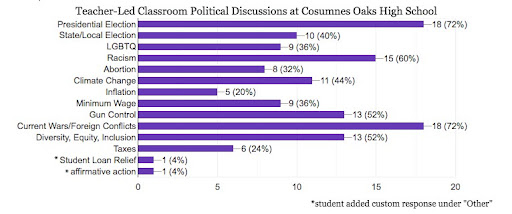
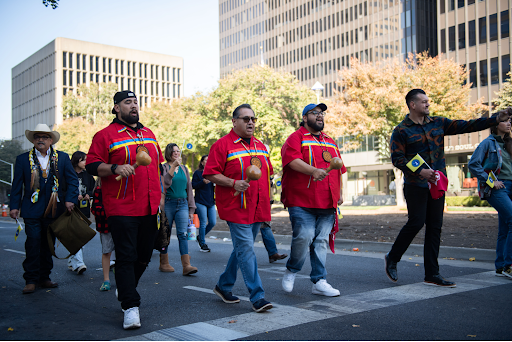

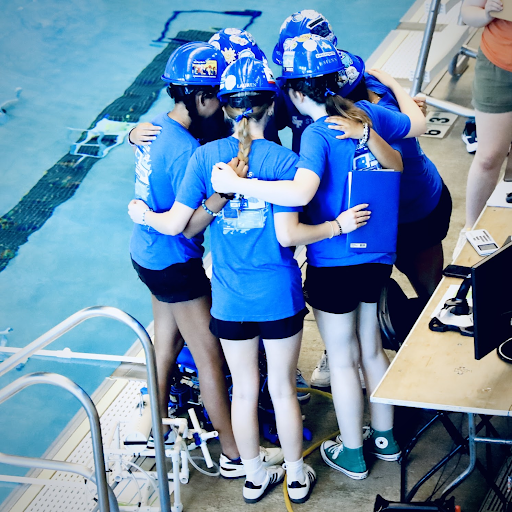
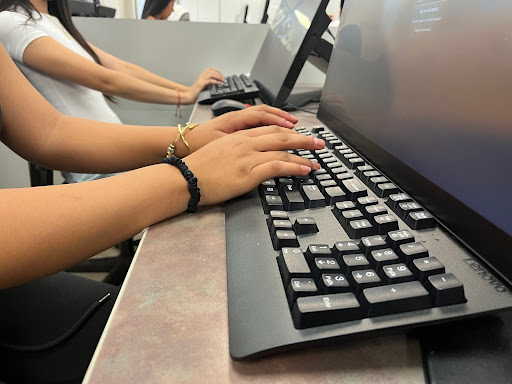


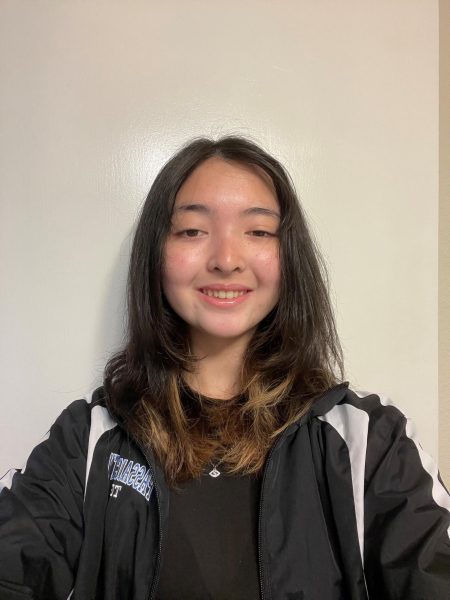
Saffiya Sheikh • Mar 13, 2024 at 1:23 pm
I loved this.
Abena • Jan 6, 2024 at 1:35 pm
So insightful!!❤️